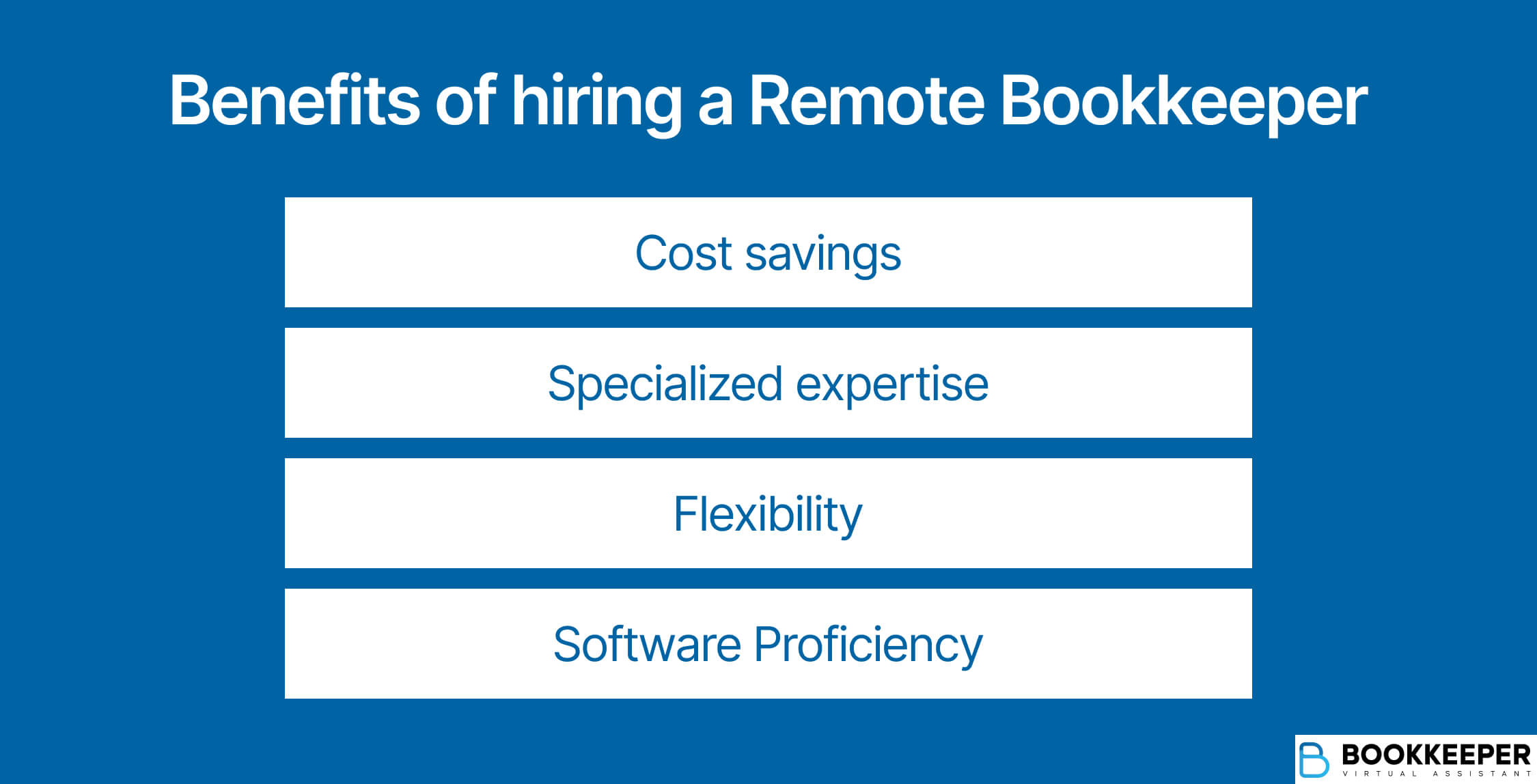Yes, a remote bookkeeper can handle trust accounting for your law firm. With cloud-based accounting software and proper security measures, remote bookkeeping services have become a reliable solution for managing trust accounts and maintaining compliance with financial regulations.
The legal profession has evolved significantly in recent years, and so has the way law firms manage their financial operations. As a lawyer, you may not have a strong background in accounting, yet you’re still responsible for ensuring accurate financials and compliance. This is where remote bookkeeping services prove valuable, especially for specialized needs like trust accounting.
What is a Remote Bookkeeper
A remote bookkeeper is a financial professional who provides bookkeeping services from a location outside your physical office space. These professionals use cloud-based accounting software to access financial data and manage financial records remotely.
Remote bookkeepers are also referred to as virtual or online bookkeepers. They handle the same key responsibilities as in-house staff, including preparing financial reports, tracking expenses, and managing accounts payable and receivable.
The primary difference between a remote bookkeeper and an in-house employee lies in their working arrangement. Virtual bookkeepers operate from their own locations rather than within a traditional office, while maintaining consistent services through secure digital connections and communication tools.
Can Trust Accounting Be Done Remotely?
Trust accounting can be effectively managed remotely when proper systems and security measures are in place. Remote bookkeepers can perform accurate trust accounting tasks using specialized accounting software designed for legal professionals.
Through technological tools, it allows remote bookkeepers to access bank statements, reconcile accounts, and generate cash flow reports in real-time. This technology enables them to monitor financial transactions and ensure compliance with trust account regulations from any location.

The key to successful remote trust accounting lies in establishing secure data access protocols and maintaining regular communication with your remote bookkeeping team. Your virtual bookkeeper can prepare financial reports, track client funds, and provide valuable insights into your trust account activity while adhering to all financial regulations.
Data security remains paramount when handling trust accounts remotely. Professional remote bookkeeping services implement bank-level security measures and encryption protocols to protect sensitive financial data and client information.
Benefits of Hiring a Remote Bookkeeper for Trust Accounting

Hiring a remote bookkeeper for your firm's trust accounting offers several advantages.
Cost savings
Partnering with a remote bookkeeper can lead to significant cost savings. You can avoid the overhead costs associated with in-house employees, including office supplies, employee benefits, and additional office space.
Specialized expertise
Many remote bookkeepers focus specifically on serving legal professionals and understand the unique requirements of trust accounting. This specialized knowledge helps you avoid costly mistakes and ensures compliance with financial regulations.
Flexibility
Remote bookkeeping services provide flexibility in managing your financial operations. You can scale services up or down based on your business needs without the commitments associated with full-time in-house staff. This flexibility allows you to maintain accurate bookkeeping while adapting to changes in your practice.
Software Proficiency
Access to advanced accounting software and technology often comes standard with remote bookkeeping services. These tools enable better expense tracking, automated invoice processing, and comprehensive financial recordkeeping that might be costly to implement independently.
How Much Does a Remote Bookkeeper Cost?

Remote bookkeeping costs depend on factors like task complexity, expertise, required services, and whether you hire through an agency or directly.
According to Indeed, the average annual salary of an in-house bookkeeper in the United States is $47,137, though this rate may be higher depending on experience and the range of services provided.
With a remote bookkeeper, you can access global talent and can have the same quality of service at a lower cost. Professionals in countries with lower living expenses often provide competitive rates, making them more affordable than U.S.-based hires. For example, the average annual salary of a remote bookkeeper from Bookkeeper.law is $27,924, saving you around 41% compared to hiring in the U.S.
When comparing costs, it’s important to consider the total expense of in-house staff, which includes not only salary but also employee benefits, training, and overhead. Remote bookkeeping often delivers significant savings by eliminating these additional expenses.
Is a Remote Bookkeeper Right for Your Practice?
You should consider hiring a remote bookkeeper for trust accounting if you notice any of these signs in your practice:
- Too much time on nonbillable work – If you’re regularly staying late to handle financial tasks instead of client work, you need bookkeeping support.
- Late or incomplete trust reconciliations – Missing reconciliation deadlines risks regulatory violations and sanctions.
- Frequent errors in trust accounting – Mistakes in client fund management, journal entries, or payment allocations can damage client relationships and create compliance issues.
- High bookkeeping costs – Paying high salaries, benefits, and turnover costs for in-house staff may no longer be sustainable.
- Lack of trust accounting expertise – General bookkeepers often lack the specialized knowledge required for legal trust accounting.
- Practice growth without staff capacity – If transactions are increasing but you can’t afford more full-time employees, a remote bookkeeper bridges the gap.
- Cash flow problems despite client funds – Poor financial recordkeeping can create cash flow issues even when money is available. Remote bookkeepers provide better cash flow reports and financial insights to help you make informed decisions.
- You already use cloud-based accounting software. If your practice operates with digital workflows and electronic financial records, you're already positioned for successful remote bookkeeping collaboration.
- Cloud-based software in place – If your practice already uses digital workflows, you’re ready for seamless remote collaboration.
- You want better financial reporting and analysis. When you need clear financial reports, balance sheets, and cash flow statements but lack the expertise to create them, remote bookkeepers deliver professional financial documentation.
- Need for better reporting – When you want clear financial reports, balance sheets, and cash flow statements, remote bookkeepers deliver professional documentation.
Final Thoughts
Managing trust accounting is a critical responsibility for every legal professional. Separating client funds from operating funds is not only essential but also a requirement under American Bar Association (ABA) rules.
Remote bookkeeping has transformed the way law firms manage financial operations, including trust accounting. With experienced professionals and the right tools, you can maintain accurate records, ensure compliance, and handle trust accounts with confidence.
As technology advances and remote work becomes the norm, remote bookkeeping offers a practical, cost-effective solution for law firms of all sizes. The key to success lies in choosing the right service provider and establishing clear communication processes.
If you’re looking for a remote bookkeeper who understands the unique demands of legal practice, Bookkeeper.law provides dedicated professionals who specialize exclusively in serving law firms.






